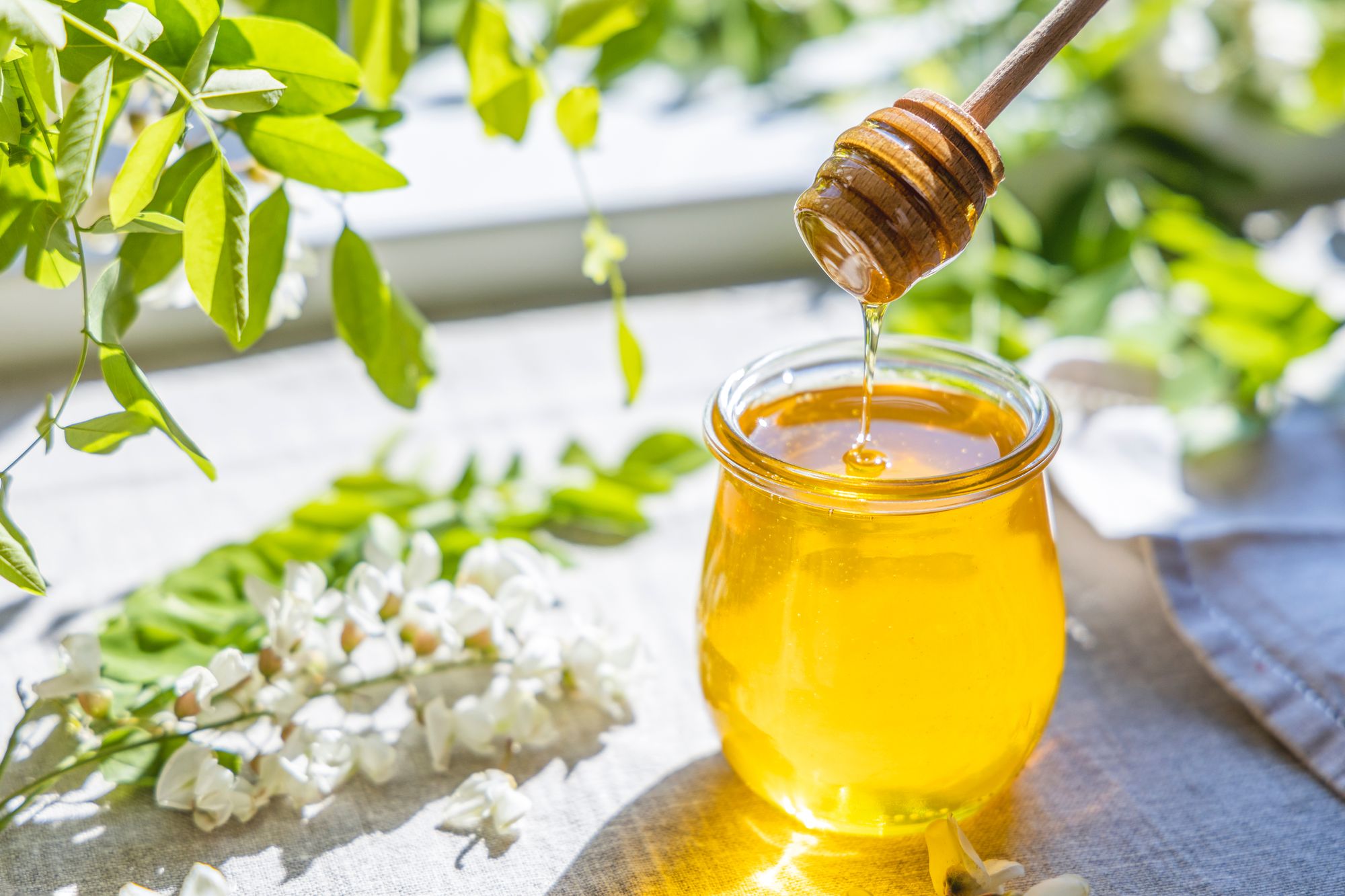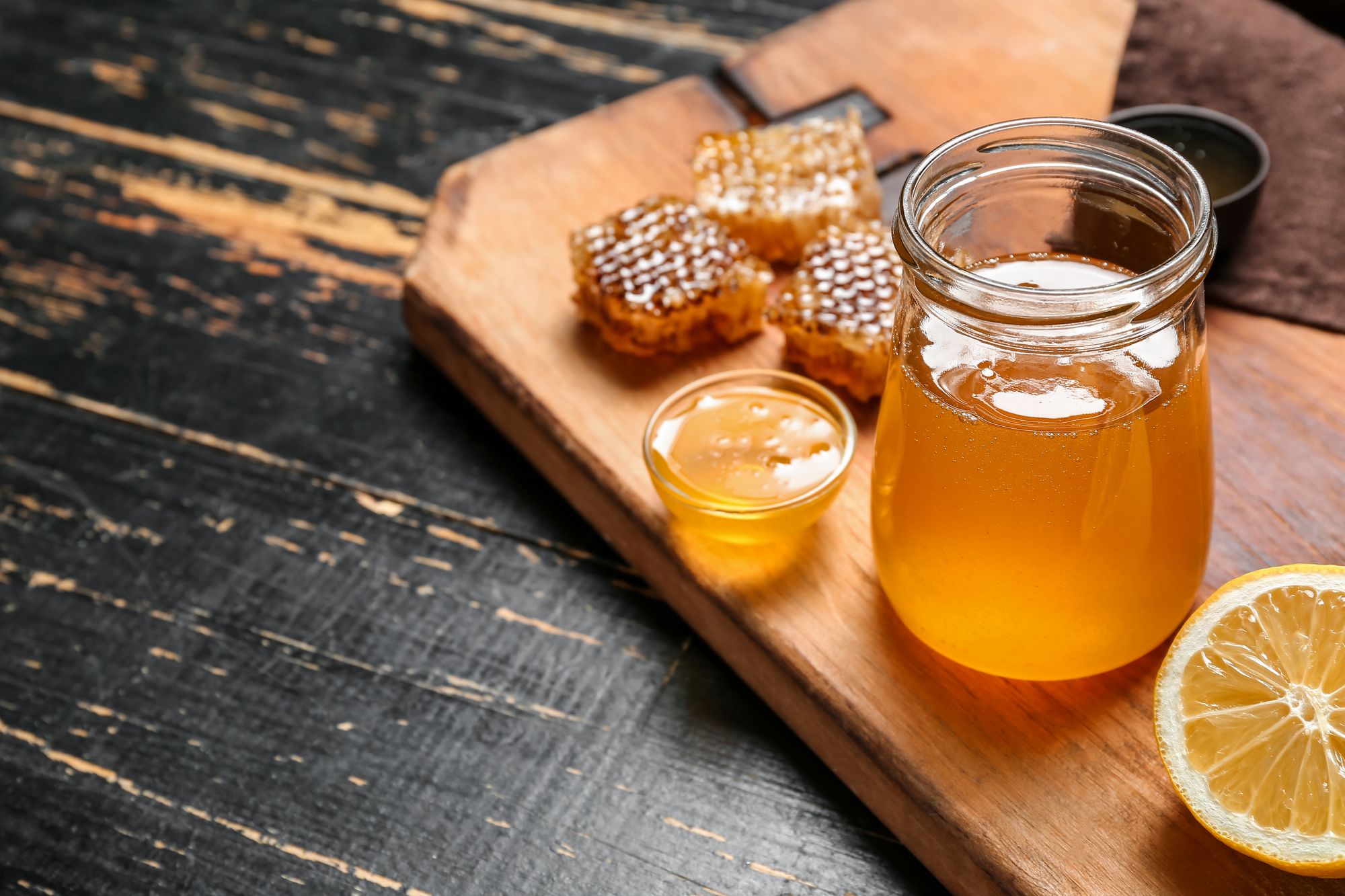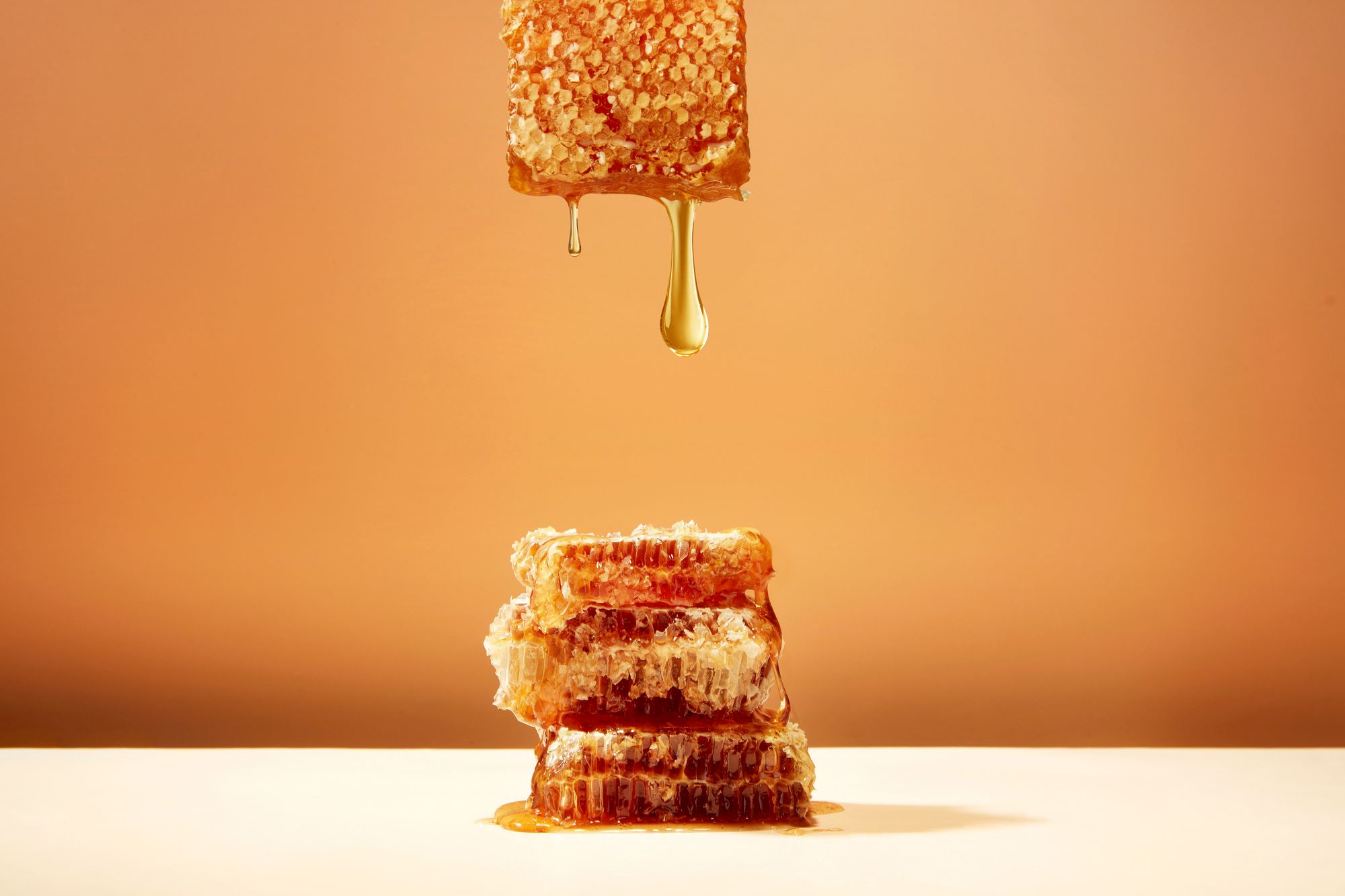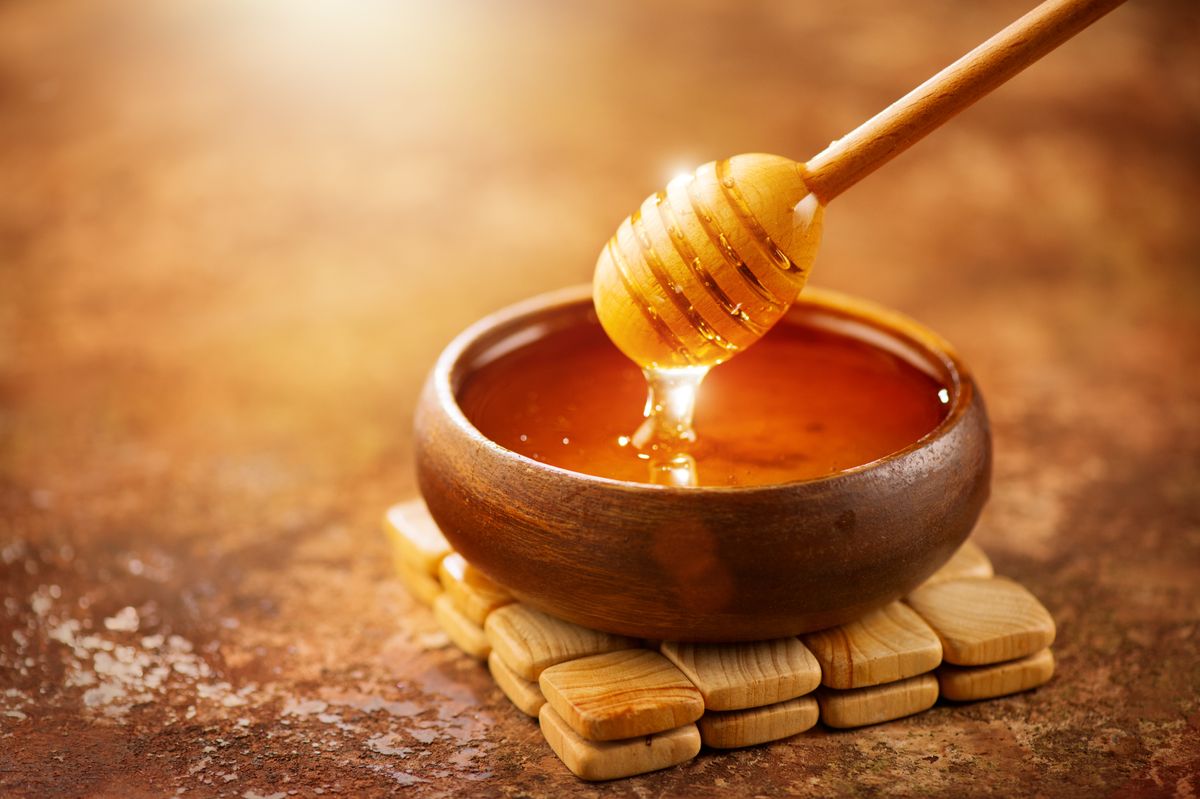Honey is a pantry staple that offers a multitude of benefits, making it a valuable addition to any household. Its versatility allows it to be used in a variety of ways - from adding sweetness to fruit, toast, oatmeal, and cheese boards, to being used in homemade salad dressings, marinades, and even hot tea, coffee, and cocktails. While it is often used as a natural alternative to processed or refined sugar, it is important to consider whether honey truly lives up to its reputation as a healthier choice.
Honey, produced by diligent bees and subjected to minimal processing, is deemed a natural sweetener that retains a wealth of vitamins, minerals, and antioxidants. In contrast, refined sugar, which originates from natural sources like sugar cane or sugar beets, undergoes extensive processing that strips it of any nutritional value. Nonetheless, is the naturalness of honey sufficient grounds to qualify it as a healthy choice?
To gain a deeper understanding, keep reading as dietitians elaborate on the benefits of honey, as well as potential side effects.
"Nutritional Profile of Honey: What You Need to Know"

Discover the Nutritional Breakdown of 1 Tablespoon (21 grams) of Honey:
- Calories: 63.8
- Fat: 0 grams
- Carbohydrates: 17.3 grams
- Sugar: 17.2 grams
- Fructose: 8.6 grams
- Glucose: 7.5 grams
- Sucrose: 0.2 grams
- Fiber: Less than 0.5 grams
- Protein: Less than 0.5 grams
Six Ways Honey Can Benefit Your Health
1) The Antimicrobial Properties of Honey

Have you ever received advice to add a spoonful or two of honey in your tea when you're feeling under the weather? Apart from the sweet taste it provides, there may be more to this recommendation.
Mary Sabat MS, RDN, LD, explains, "Honey possesses antimicrobial properties that enable it to combat bacteria, fungi, and viruses." She further cites a research published in the British Journal of Surgery, indicating that honey was effective in healing infected wounds.
While honey might not be a go-to solution for open flesh injuries, these findings offer hope for individuals who seek relief from flu-like symptoms by adding honey to their tea.
2) Abundant Antioxidants in Honey
Incorporating honey into your diet provides another advantage - a rich source of potent antioxidants that offer significant benefits to your body.
Mary Sabat MS, RDN, LD, notes that "Honey is packed with antioxidants, which can shield the body against damage caused by free radicals. These unstable molecules are responsible for cell damage and contribute to chronic illnesses like cancer, heart disease, and Alzheimer's disease." Additionally, Oxidative Medicine and Cellular Longevity journal reported that the antioxidant properties of honey were associated with a reduction in chronic inflammation.
Similarly, other natural sweeteners, such as pure maple syrup, agave nectar, and date syrup, possess comparable antioxidants that are absent in processed sugar.
3) Relieving a Sore Throat with Honey

Experiencing a sore throat is one of the unpleasant symptoms of an illness. However, there's a ray of hope - honey may offer a soothing effect if you feel like you're swallowing sharp objects.
Mary Sabat MS, RDN, LD, confirms that "Honey is a proven remedy for a sore throat." She further cites a study published in Archives of Pediatrics and Adolescent Medicine, which found that honey was more effective in easing coughs and alleviating sore throat symptoms in children than cough suppressants.
4) Supporting Digestion with Honey
While honey is often employed as a sweetener or for alleviating sickness, it can also enhance digestion and gut health in the long run.
As Mary Sabat MS, RDN, LD, points out, "Honey can facilitate digestion by fostering the proliferation of beneficial bacteria in the gut." Furthermore, a research published in Frontiers in Nutrition demonstrated that honey had prebiotic effects on gut health.
5) Potential Blood Pressure Lowering Benefits of Honey

Various studies suggest that honey may have beneficial impacts on cardiovascular health. The International Journal of Environmental Research and Public Health reports that honey may enhance heart rate, regulate blood lipid levels, and impede the death of healthy cells in the body.
Similarly, Clinical and Experimental Hypertension published a study indicating that women over 40 who consumed a moderate quantity of honey experienced reduced blood pressure levels.
6) Lower Blood Sugar Spikes with Honey Compared to Other Sugars
Opting for a natural sweetener to replace regular sugar is a wise decision, especially for individuals monitoring their blood sugar levels.
Jesse Feder, RDN, CPT with My Crohns and Colitis Team, comments that "Calorically and sugar-wise, honey and sugar are similar. However, research indicates that honey can assist in treating diabetes alongside diabetic medications. Honey contains higher fructose content, which does not lead to a considerable increase in blood sugar levels. Instead, it stimulates healthy insulin function and aids in regulating blood sugar levels."
Three Potential Adverse Effects of Honey Consumption
1) High Caloric Content of Honey

The advantages or drawbacks of consuming honey may vary depending on one's individual health objectives. As mentioned earlier, this natural sweetener is unlikely to raise blood sugar levels as much as other sugar types.
However, Mary Sabat MS, RDN, LD, emphasizes that "Honey is still relatively high in calories and should be consumed in moderation. A tablespoon of honey contains approximately 64 calories."
Despite being a natural sweetener, honey still contains 17 grams of sugar per tablespoon. If one is searching for a lower-calorie alternative to honey or other sugar types, they may consider using a zero-calorie sweetener instead.
2) Possible Allergic Reaction to Honey
While there are only a few potential downsides associated with honey consumption, the Mayo Clinic cautions against possible allergic reactions. Mary Sabat MS, RDN, LD, concurs, stating that "certain individuals may have an allergy to honey, resulting in symptoms such as hives, itching, or swelling. In severe cases, an allergic reaction can lead to anaphylaxis, which is a life-threatening allergic reaction requiring urgent medical intervention."
3) Risk of Infant Botulism with Honey Consumption
It's essential to note that honey can pose a significant risk to children under the age of one.
Mary Sabat MS, RDN, LD, explains that "Honey may contain spores of bacteria that can cause botulism, and these spores can develop and release toxins in the infant's intestines. This can result in severe illness or even death."
Thus, it's advisable to avoid giving honey to infants under one year of age, including any food items containing honey, such as honey-sweetened cereals or drinks. Children older than one year have a more robust digestive system that can eliminate the botulism spores.

